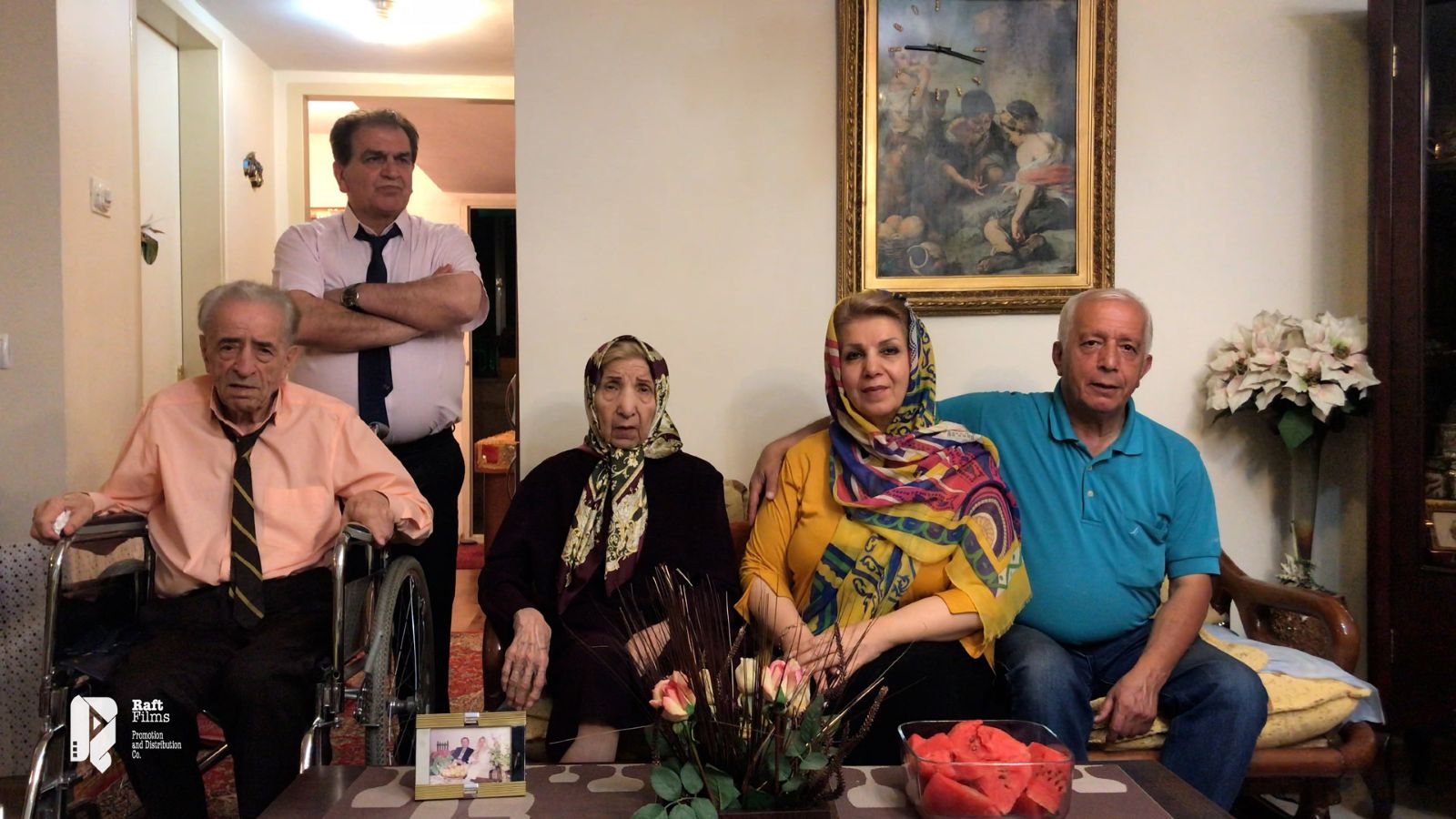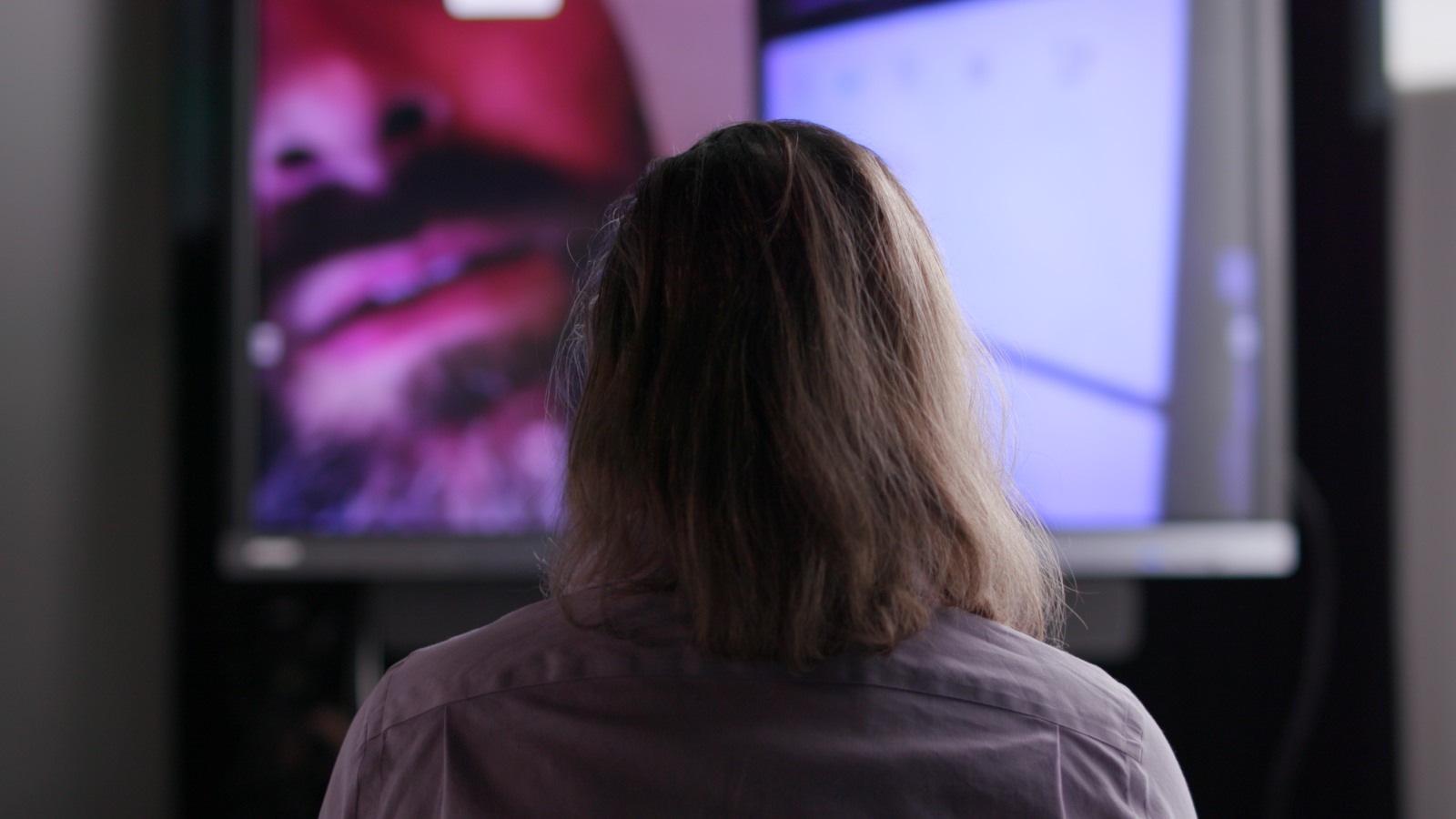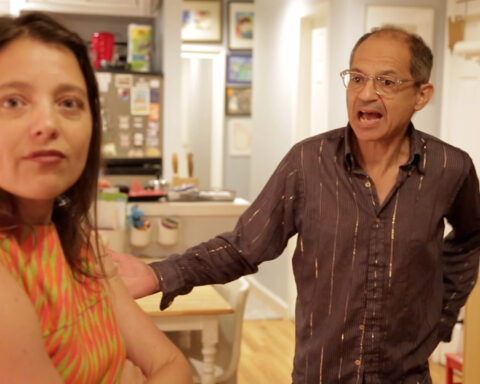Heritage
(Iran, 73 min.)
Dir. Mir Mohammad Najafi
Programme: International Spectrum Competition (World premiere)
Director Mir Mohammad Najafi takes a quiet approach to Heritage, opting for a cinéma vérité style that expounds the joy and heartache of family. As we follow the daily comings and goings of Fariba Kani, a woman in her 60s taking care of her aged parents, we experience with her highs and lows that transcend language and culture.
Struck with one of life’s cruelties, Fariba’s mother, Soudabeh Es-haqi, suffers from Alzheimer’s and no longer remembers her increasingly frail husband, Ali Asghar Kani, with whom she shares an apartment. As the days pass, Fariba and her brother, Mojtaba Kani, take turns making their parents’ lives as comfortable as possible, with Mojtaba staying overnight and Fariba relieving him in the morning.
Throughout the film, we witness Fariba’s gentle care, as well as her frustrations. As the dutiful daughter, she allows herself a moment to express her grievances over putting her life on hold to be a caretaker. She speaks the words that anyone who finds themselves in a similar position feels at some point. It’s a brief reprieve of deserved selfishness.
Taking that moment in contrast to the image of Fariba cleaning up Soudabeh’s room after her passing, Heritage brings together the beautiful intricacies of life and the relationships it builds along the way. As Fariba tearfully removes the physical reminders of her mother from the house, and eventually bids good-bye to an empty apartment when her father passes soon after, Fariba’s earlier vexation—without being said or explained—simply becomes a part of the human experience, rather than anything remotely begrudging.
Najafi’s camera never intrudes on the Kani family, but it also doesn’t sit like a fly on the wall providing widely-lensed shots. The filmmaker strikes the balance between making us feel like we’re there in the living room celebrating Soudabeh and Ali Asghar’s birthdays, but from a respectful distance that doesn’t become invasive.
Najafi’s cinematography and Babak Haidari’s editing narrate the film in the absence of a voice guiding us. Particularly at the end of the film when we linger over an empty apartment with only flashes of natural light enlivening the home, we come to understand the love of family and sacrifice. In that empty space, Soudabeh, Ali Asghar, Fariba, and Mojtaba made an apartment a home. Compounded with a montage of old photographs showing Soudabeh and Ali Asghar in their youth and beyond, Heritage ends on a note that stresses the importance of not necessarily forgetting the painful points of life, but taking them in conjunction with the moments of warmth and laughter.
Oftentimes, films make the extraordinary the subject. Heritage, though, finds the extraordinary in the ordinary by painting a deceptively simple portrait of one of life’s truths and how it effects those existing around it. Najafi composes the film like a home video, albeit one that captures a time that most people would rather forget. The Kani family, with the help of Najafi, puts forward the argument that perhaps these years shouldn’t be dismissed, but nor should they be the lasting memory.













